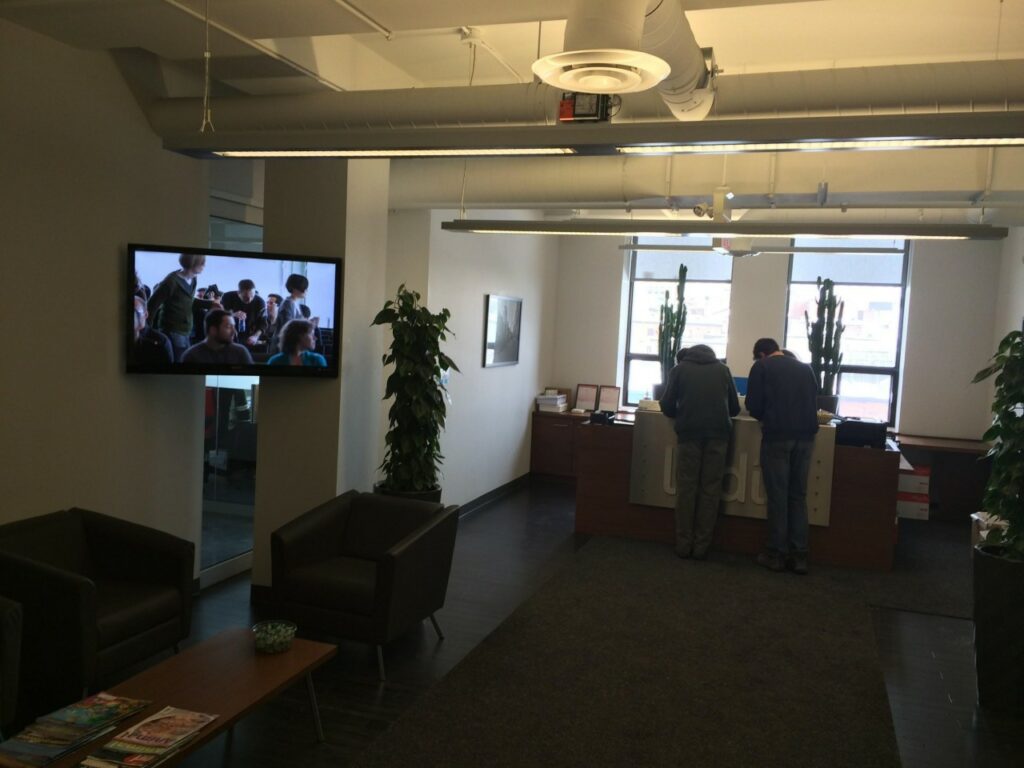Ludia makes what they call “digital” games, and through the presentation they defined it as both mobile games and browser based games for Facebook. Not being a big mobile game player, I was very interested in visiting Ludia to see how their studio differed from other studios that make different kinds of games. Ludia’s studio is a short bus ride or 15 minute walk from the UQAM dorms where many Champlain College students stay during their semester abroad in Montreal.
After checking in with the front desk, we were greeted by one of Ludia’s HR representatives. He took us into a large meeting room and with another colleague showed us a presentation covering not only the company’s history and games but also giving a summary of the current mobile games industry.

One thing I found interesting from the presentation was how Ludia decided to move from consoles to digital only games. This allowed them more control over deadline creation because the submission process to the iOS App store for example is much easier than going through with a console manufacturer. This allows for fast iterative stages in development that bigger companies to not have time for when they have a hard set deadline for the gold edition of the game to be in by.
After the presentation we were guided through the entire two level studio. They offer fresh fruit daily in the cafeteria area as well as a room dedicated to table tennis. Ludia has over 200 employees that are spread throughout the two levels by project. They also have a large presentation room where the entire company can fit in one room.
The studio trip to Ludia offered a look at a mobile game company as opposed to the PC/console studios we have toured in the past. Learning about the mobile game company approach to game development from Ludia’s point of view was interesting as there are key strengths and weaknesses between mobile and console systems that many seem to overlook or not think about.

